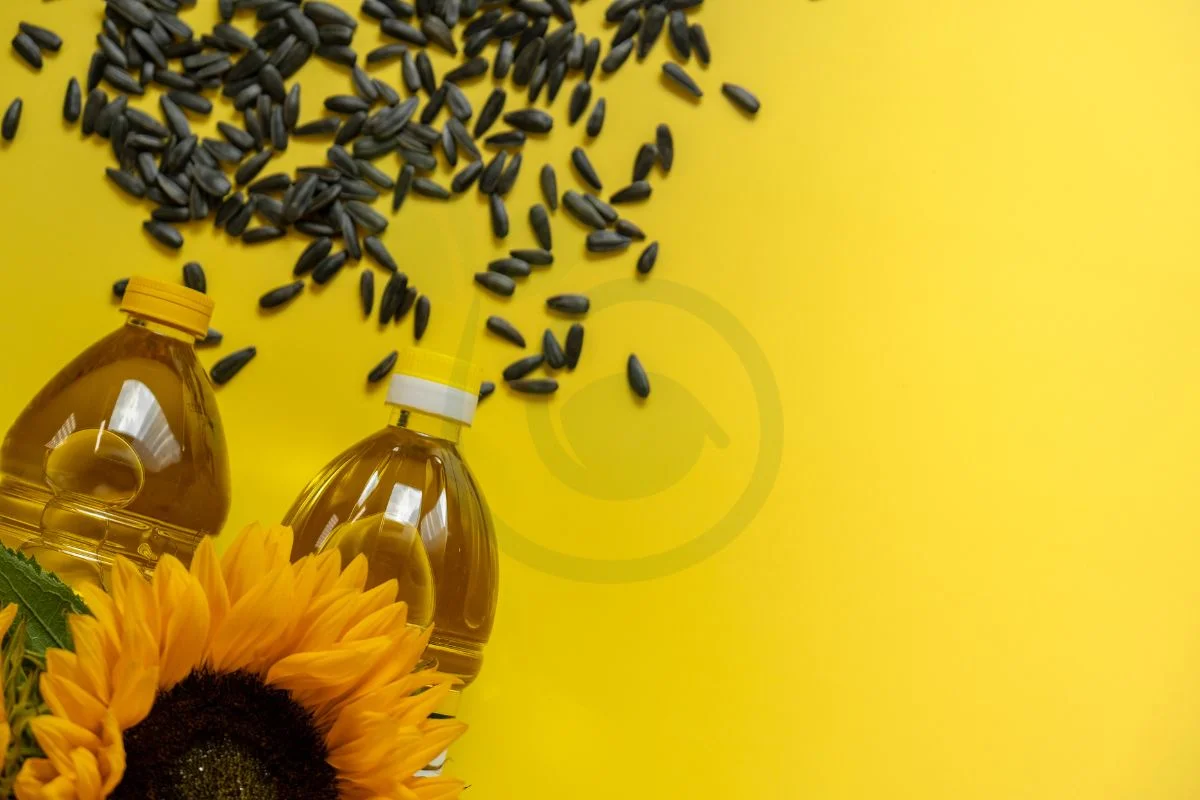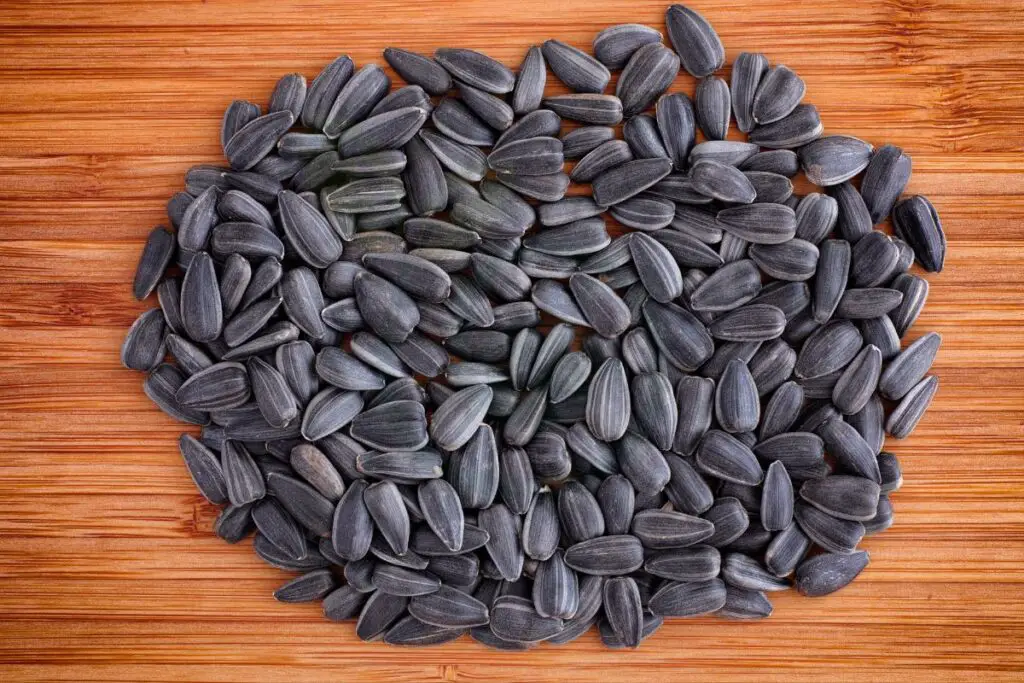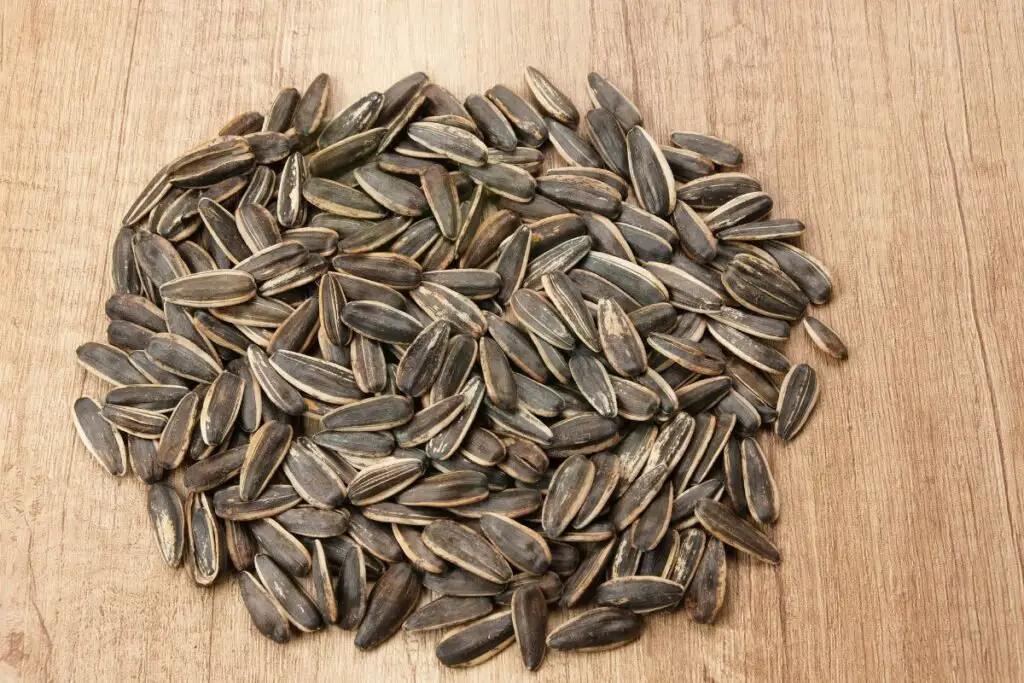
Edible sunflower seeds are a delightful addition to any diet, packed with nutrients and flavor. As a trusted source of information, I'm here to guide you on how to incorporate these nutritious seeds into your meals effortlessly.
Edible sunflower seeds, harvested from the sunflower plant (Helianthus annuus), are rich in healthy fats, protein, fiber, vitamins, and minerals. They are commonly consumed roasted or raw as a snack or added to various dishes for extra crunch and nutrition. These seeds offer numerous health benefits, including promoting heart health, aiding in weight management, and supporting bone health due to their calcium content. When comparing edible sunflower seeds to other snack options, they stand out for their versatility and nutrient density. For instance, a one-ounce serving of sunflower seeds provides about 6 grams of protein and 3 grams of fiber, making them a satisfying and nutritious snack choice.
Ready to explore the wonders of edible sunflower seeds further? From unique recipes to health tips and cultivation techniques, there's a wealth of information waiting to be discovered. Let's embark on this journey together to unlock the full potential of these tiny but mighty seeds!
Key Takeaways
- Start with Quality Seeds: Choose high-quality edible sunflower seeds for planting to ensure a successful harvest.
- Monitor Growth Closely: Keep a close eye on the growth of your sunflowers to address any issues promptly and ensure healthy development.
- Harvest at the Right Time: Harvest sunflower seeds when the flower heads turn brown and the seeds are plump and developed.
- Efficient Seed Processing: Properly dry and store harvested seeds to maintain freshness and prevent spoilage.
- Enjoy Homemade Snacks: Roast or flavor sunflower seeds for a delicious and nutritious snack option.
- Experiment with Recipes: Get creative with incorporating sunflower seeds into various dishes for added texture and flavor.
Edible Sunflowers Overview
Variety Highlights
Black Russian
- Plant Black Russian sunflower seeds in well-drained soil for optimal growth.
- Ensure full sunlight exposure for Black Russian sunflowers to thrive.
- Harvest Black Russian sunflower seeds when the center florets have dried up.
Mammoth Varieties
- Choose Mammoth sunflower seeds for their large, heavy heads with sweet nutty flavor.
- Plant Mammoth sunflowers 12 to 18 inches apart to allow room for growth.
- Enjoy Mammoth sunflower seeds as fiber-rich snacks or bird feed.
Benefits Explained
Nutritional Value
- Edible sunflower seeds are rich in nutrients like protein and healthy fats.
- Incorporate edible sunflower seeds into your diet for a tasty and nutritious snack.
- Sunflower seeds provide essential vitamins and minerals for overall health.
Garden Aesthetics
- Plant sunflowers for their beautiful golden petals and green center disks.
- Create a stunning garden display with tall sunflowers and big flower faces.
- Enjoy the classic beauty of sunflowers in your garden space.
Preparing the Garden

Soil Requirements
To ensure successful growth, plant edible sunflower seeds in fertile, nutrient-rich soil that drains well. Poke seeds 1 inch deep and space them 4 inches apart for optimal development.
Sunflowers thrive in soil rich in nutrients and well-drained, making it crucial to prepare the ground appropriately. The depth and spacing of planting the seeds play a significant role in their growth.
Sunlight Needs
Edible sunflowers require full sun exposure to grow tall and produce vibrant blooms. Providing at least 6-8 hours of sunlight daily is essential for their healthy development.
Adequate sunlight is necessary for sunflower plants to develop strong stalks and large, mature seeds. Insufficient sunlight can result in stunted growth and poor seed production.
Watering Schedule
Keep the soil moist as sunflower seedlings emerge, ensuring they receive adequate hydration during dry spells. However, be cautious not to overwater the plants to prevent issues like root rot and fungal diseases.
Maintaining a consistent watering schedule is crucial for the healthy growth of edible sunflowers. Overwatering can lead to adverse effects on plant health, so it's important to strike a balance in watering practices.
Seed Selection
Non-GMO Options
- Choose non-GMO sunflower seeds to promote natural and sustainable gardening practices.
- Opt for non-GMO varieties to support biodiversity and maintain environmental health.
- Planting non-GMO sunflower seeds ensures you harvest delicious and safe edible seeds.
Organic Choices
Select organic sunflower seeds for chemical-free and eco-friendly gardening solutions. Organic sunflower seeds are cultivated without synthetic pesticides or fertilizers, ensuring a pure environment. Enjoy the untainted taste of organic edible sunflower seeds, free from harmful chemicals.
Direct Garden Planting
Sowing Techniques
Plant sunflower seeds directly in the garden for convenience and simplicity. Starting sunflower seeds indoors can also be beneficial to promote early growth before transplanting them outside. Following proper sowing techniques is essential for successful sunflower cultivation.
Spacing Guidelines
Space sunflower seedlings 12 to 18 inches apart to ensure they have enough room to grow properly. Allow a distance of 3 feet between rows of sunflowers to support the development of mature plants. Adhering to spacing guidelines is crucial to prevent overcrowding and promote healthy sunflowers.
Starting Indoors
Container Selection
Choosing the right containers is crucial for indoor sunflower growth. Opt for large containers with adequate drainage to prevent waterlogging. Ensure the containers are deep enough to accommodate the sunflower roots comfortably. Lightweight containers are preferable for easy mobility and maintenance of your indoor sunflowers.
Indoor Lighting
Proper indoor lighting is essential for healthy sunflower seedling development. Supplement natural light with grow lights to ensure optimal growth. Adequate light exposure is necessary for robust stem and leaf formation in sunflower seedlings.
Transplanting Tips
When transplanting sunflower seedlings, handle them with care to prevent root damage. Space transplanted sunflowers at least 12 to 18 inches apart to allow proper growth and avoid overcrowding. Before transplanting outdoors, make sure to acclimate the sunflower seedlings gradually to outdoor conditions.
Growth Monitoring

Fertilization Needs
Sunflowers benefit from balanced fertilizer to support their growth and development effectively. Using a balanced fertilizer helps in providing the necessary nutrients for healthy sunflower plants. Apply fertilizers sparingly to prevent nutrient imbalances that could hinder sunflower growth. Over-fertilization can lead to issues like stunted growth or excessive foliage.
When it comes to feeding sunflowers, opt for organic fertilizers for sustainable and natural growth. Organic fertilizers are derived from natural sources such as compost or manure, promoting healthier soil and plant growth. These fertilizers enhance soil structure, improve nutrient retention, and support beneficial microorganisms essential for sunflower health.
Pest Control
To safeguard sunflowers from pests, consider covering the seeds with netting or baskets to prevent pest access. This physical barrier method helps protect the seeds from birds, rodents, and other pests that may feed on them. Regularly monitor sunflowers for any signs of pest infestation such as chewed leaves or wilting.
If you notice any pest issues, take prompt action to address them effectively. Implement natural pest control methods to protect sunflowers without resorting to harmful chemicals. For example, introducing beneficial insects like ladybugs or using neem oil spray can help combat common pests while maintaining a natural balance in the garden ecosystem.
Harvesting Seeds
Optimal Timing
Plant sunflower seeds in warm weather above 50°F (10°C) for successful growth. Harvest seeds after midsummer post-pollination to ensure maturity. Coordinate planting and harvesting times for optimal outcomes.
Extraction Methods
To harvest sunflower seeds, gently extract them from flower heads once pollination ends. Employ delicate techniques to prevent seed damage during extraction. Follow proper methods to obtain intact, ready-to-eat sunflower seeds.
Seed Processing
Cleaning Seeds
Clean harvested sunflower seeds by removing any debris or plant material. Rinse the seeds with water to eliminate dirt and impurities. Ensure the seeds are clean and dry before further processing.
Drying Techniques
Dry sunflower seeds naturally by spreading them in a single layer. Use a dehydrator or oven on low heat to dry the seeds quickly. Dry the seeds completely before storage to prevent mold and spoilage.
Snack Preparation
Roasting Seeds
Roast sunflower seeds for a crunchy snack by spreading them on a baking sheet. Bake until golden. Sprinkle roasted sunflower seeds with salt or your favorite spices like paprika or garlic powder. Savor the freshly roasted sunflower seeds as a nutritious and tasty snack full of essential nutrients.
Flavoring Ideas
Try unique flavors like honey, cinnamon, or chili powder to add excitement to your sunflower seeds. Mix in dried fruits or nuts like cranberries or almonds for a delightful twist to your snack. Craft personalized flavored sunflower seeds by experimenting with different combinations for a fun treat.
Closing Thoughts
You now have a comprehensive guide on growing and enjoying edible sunflower seeds. From preparing your garden to harvesting and processing the seeds, you are well-equipped to embark on this rewarding journey. By following these steps, you can savor the delicious and nutritious snack straight from your garden. Remember to monitor the growth of your sunflowers diligently for the best results.
Now it's time to roll up your sleeves, get your hands dirty, and start planting those sunflowers! Your efforts will soon pay off with a bountiful harvest of tasty seeds. Share your experiences with others and spread the joy of growing your own edible sunflower seeds!
Frequently Asked Questions
Are edible sunflower seeds nutritious?
Edible sunflower seeds are a good source of healthy fats, protein, fiber, vitamins, and minerals. They provide essential nutrients like vitamin E, magnesium, and selenium that support overall health and well-being.
How do I prepare my garden for planting edible sunflowers?
To prepare your garden for planting edible sunflowers:
- Choose a sunny location with well-drained soil.
- Clear the area of weeds and debris.
- Amend the soil with compost for nutrients.
- Ensure proper spacing between plants for optimal growth.
When is the best time to plant edible sunflower seeds directly in the garden?
The best time to plant edible sunflower seeds directly in the garden is after the last frost date in your region. Sunflowers thrive in warm weather, so planting them when the soil has warmed up will promote healthy growth and development.
Can I start growing edible sunflowers indoors?
Yes, you can start growing edible sunflowers indoors before transplanting them outdoors. Use biodegradable pots or seed starting trays filled with potting mix. Provide adequate light, water, and warmth to encourage seed germination and early growth.
How do I harvest and process edible sunflower seeds for snacking?
To harvest and process edible sunflower seeds for snacking:
- Allow the flower heads to dry on the stalk.
- Remove the mature seeds from the head.
- Rinse the seeds to remove any debris.
- Dry the seeds thoroughly before roasting or seasoning for a delicious snack option.
Image Source: Paid image from CANVA


